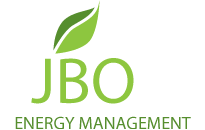

|

|

|
|

|
What We DoEnergy auditsEnergy audits are an inspection, survey, and analysis of energy consumption in a building process or system. The end-goal of an energy audit is to identify areas of high usage and waste and determine services and/or systems that will reduce your energy demand or control usage - without decreasing your production.
Depending on the level of audit you need, a professional energy audit will:
The two most typically performed audits are General Audits and Investment-Grade Audits. General Audit: This audit examines both operating costs and energy usage analysis (generally 12-26 months of utility reports). It addresses demand rates and usage profiles, and provides sufficient data to support implementation of energy efficiency projects. Investment-grade Audit: This audit addresses financial investment on a more detailed level and determines facility upgrades based on costs and return on investment. This level of audit is imperative to quantify guaranteed savings for investors/shareholders. ImplementationThis involves breaking down the project into manageable financial deliverables according to financial constraints. Why should your business suffer the continuing exorbitant cost of electricity because you cannot afford the entire project? We can assist by breaking down projects and rolling them out in phases in line with your monthly budget. For phased implementation, we assist with project and cost management control from start to finish. Eskom (DSM)South Africa, like other countries in the developed and the developing world, faces an energy-constrained future. Studies to establish energy efficiency when compared with that of other countries with a similar per-capita Gross Domestic Product (15% variance), indicate that South Africa is more electricity-intensive by between 35% and 65% than its counterparts, of which a significant proportion is estimated to arise from the use of less energy efficient technology and production processes. This leaves substantial opportunities for energy saving through technologies. Furthermore, in line with international governance trends, local companies are likely to be legally bound to adopt sustainable business practices at some point in future. Requirements such as the reduction of a company's impact on the environment, amongst others, are being supported by developments such as new building standards. To this end, Eskom has established aggressive goals and targets to support customers in their drive towards optimised energy consumption. With its understanding of the fact that reducing energy demand within industry may require investments in newer technologies, equipment and processes, Eskom's Integrated Demand Management (IDM) programme makes funds available to its clients in support of reduced energy demand or consumption. In response to the energy challenges facing South Africa, Eskom has established an Integrated Demand Management (IDM) division. IDM is dedicated to ensuring short-term security of electricity supply through coordinating and consolidating the various initiatives aimed at optimising energy use and balancing electricity supply and demand. A key aspect of this demand side management programme is the promotion and implementation of more energy-efficient technologies, processes and behaviours amongst all consumers. IDMs role is to ensure single ownership of demand side management strategies, objectives and operations throughout Eskom. It takes a market-driven approach to understanding and meeting consumer requirements and provides a platform from which Eskom can collaborate with government, external stakeholders and consumers. Project ManagementEnergy-saving solutions are significant, long-term investments. When it comes to implementation, there shouldn't be any hidden surprises. We constantly communicate with clients where we are in the process and timeously identify possible deviations from the agreed strategy to allow the client time to respond. We will deliver your energy-saving solution on time and within budget, the first time. |

|

|
| © JBO Energy Management | All Rights Reserved | Designed by the Creative Factor |


